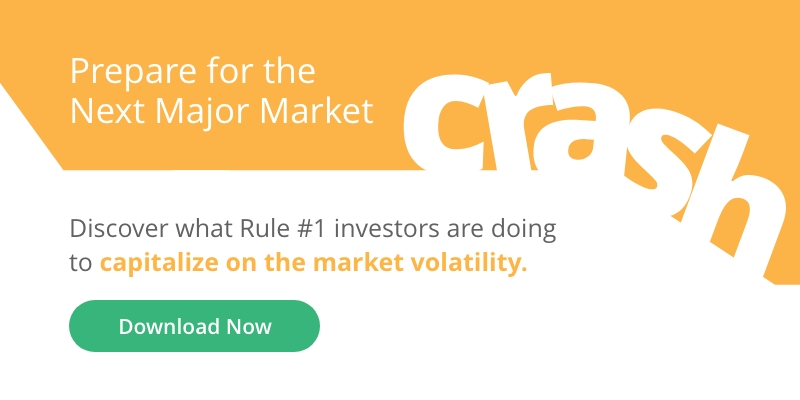Market timing or being able to time the stock market – predicting when it is going to crash and investing accordingly – is the holy grail of investing…investing Nirvana.
Having a crystal ball to predict the market is every investor’s dream.
No matter what some analysts may tell you, timing the market in this fashion is an impossible goal.
However, instead of predicting a crash, there are different ways to “time the market” that are entirely doable and can end up being just as valuable.
Are you Prepared for a Recession?
The Best Way to Time the Stock Market
The perception of market timing is often misconstrued.
Many investors consider timing the market to be predicting when a crash will take place and selling before it does.
However, stock market crashes are all but impossible to predict even for the most informed investors.
Instead of trying to time the market by selling before a crash, it’s much more beneficial to time the market by buying after one.
When I got out of the market in 2007 it still went up another 10% before it crashed.
I knew I couldn’t time the market, but I knew it was time to get out.
Stock market crashes present an excellent opportunity to buy valuable companies at discount prices.
After a crash is one of the best times to buy companies that you have targeted as great investments at a price point that leaves plenty of room for big returns.
Timing the market in this manner – predicting gains after a crash rather than predicting the crash itself – is the most effective way to time the market.
Of course, you’ll need to invest in companies that can survive the crash, as not all companies can.
Following a crash, you’ll want to choose established companies that have a moat – something that keeps competitors from carving away a large portion of their market share.
You’ll also want to be sure and buy companies that you believe in, companies that align with your values and companies that you have reason to believe that they will survive the crash.
Does Warren Buffett Time the Market?
Like most great investors, Warren Buffett times the market by buying after a crash rather than trying to sell before one.
After a crash, Buffett says that the priority is to find cheap individual companies with solid fundamentals rather than investing in the market as a whole, timing the market based on the value of individual companies rather than the direction of the overall market.
Timing individual companies allows you to take advantage of discounts on companies that will in all likelihood only be affected by a crash for a short period of time.
Once the effects of the crash wear off, great companies will still be going strong, and, in most cases, their price will return to its pre-crash level in a matter of months.
Don’t Sell During Small Crashes
Buffett also warns not to sell during small crashes and instead to weather the storm by focusing on the long-term.
If the companies you own are successful, established companies, they too are likely to return to their pre-crash price before long, making holding on to them the wisest decision.
Trying to play the guessing game about when to sell them before or after a crash will almost always only lead to headaches and lost opportunities.
Want to know the difference between a market crash and a correction? Here’s a video:
When to Sell
Timing the market by buying stocks after a crash is great for knowing when to buy a stock, but what about knowing when to sell it?
After all, even the most long-term investors must sell their stocks eventually if they want to lock in their returns.
While it’s best to buy stocks with the intention of holding onto them as long as possible, there are a few times you are better off selling.
If greed has driven the price of a stock up above its true value, you’re better off selling.
In the same way that undervalued stocks almost always eventually reach their true value, overvalued stocks almost always drop down to their true value as well.
It’s important to keep in mind, though, the difference between price and value.
The price of a stock may fluctuate rapidly, but its value is typically inherent and unchanging unless a major change within the company itself takes place.
If there is no major change to the story of a company and its price is still at or below its value, though, hold onto it for as long as you can no matter what the market does.
Throughout all of this, it’s important to keep in mind that when determining whether to sell a stock that you are evaluating and timing the individual company rather than the overall market.
No one can predict with certainty the future of the market, but with the right investment know-how, you can predict the future of an individual company, allowing you to know when it’s time to sell.
Have you ever tried to time the market? Did it work out or did you get burned? This Stock Market Crash Survival Guide will help you prepare for the next market crash and help you cash in when the market drops!
Phil Town is an investment advisor, hedge fund manager, 3x NY Times Best-Selling Author, ex-Grand Canyon river guide, and former Lieutenant in the US Army Special Forces. He and his wife, Melissa, share a passion for horses, polo, and eventing. Phil’s goal is to help you learn how to invest and achieve financial independence.


